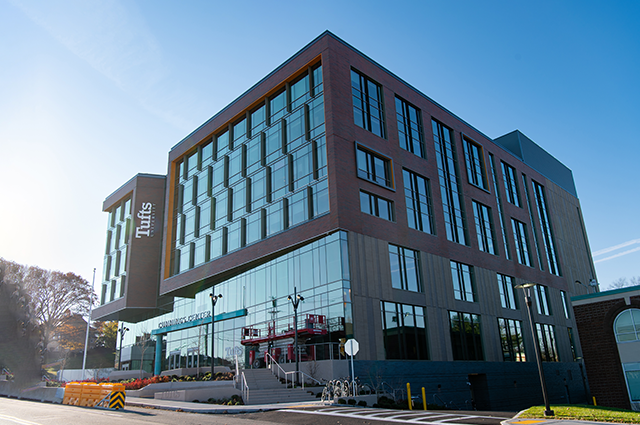Computer science undergraduates nominated for research award

The following Tufts undergraduates majoring in computer science were nominated for this year’s Computing Research Association (CRA)’s Outstanding Undergraduate Researcher Award.
Victoria Chen, A23 – Honorable mention
Under the direction of Assistant Professor Jivko Sinapov in the Multimodal Learning, Interaction, and Perception Lab (MuLIP Lab), Victoria Chen’s work focuses on leveraging augmented reality (AR) to improve human-robot interaction and collaboration. Mobile service robots generate a variety of data, including perceptual data (e.g., LIDAR readings) and cognitive data (e.g., the robot’s motion plan) which is typically hidden from the user. Chen designs and evaluates data visualization methods with the aim of enabling users to attain a more accurate mental model of how a robot operates in the context of education and human-robot collaboration.
Madeline McLaughlin, A23
Madeline McLaughlin works in the Tufts’ Security and Privacy Lab (TSP) led by Lin Family Assistant Professor Dan Votipka. McLaughlin focuses on usable security, specifically as it relates to reverse engineering and healthcare security. McLaughlin has worked on two studies, the first of which was titled, “A Qualitative Evaluation of Reverse Engineering Tools,” and focuses on evaluating the usability of reverse engineering tools. The second project encompasses several in-progress studies surrounding healthcare security, focusing specifically on the secure design process for medical devices. In the summer and fall of 2022 McLaughlin interned at MIT Lincoln Laboratory’s Cyber System Assessments group on reverse engineering internet of things (IoT) devices. She is currently interning at Recorded Future in the Data Science department and will be joining the company full time as a Data Engineer in summer 2023.
Mary-Joy Sidhom, A23
Mary-Joy Sidhom is motivated to do work that can use probabilistic machine learning to improve the quality and efficiency of medical care for sick patients. Since the summer of 2022, she has worked with Assistant Professor Michael Hughes’ lab to develop machine learning tools that can automate the interpretation of ultrasound images of the heart and ultimately make detection of heart valve disease more reliable and portable.
Sidhom’s early work assessed the transportability of machine learning tools for echocardiography. Sidhom helped create a public benchmark called Heart2Heart for researchers to assess whether models using data from one country would have comparable performance in other countries. Her co-authored paper was accepted at the 26th International Conference on Artificial Intelligence and Statistics (AISTATS), and she will present her work in Valencia, Spain in April 2023. In her honors thesis project, Sidhom is building machine learning tools to analyze Doppler ultrasound images. Doppler images help doctors measure blood flow over time. She explores how to use these images to automatically diagnose valve diseases.
Department:
Computer Science